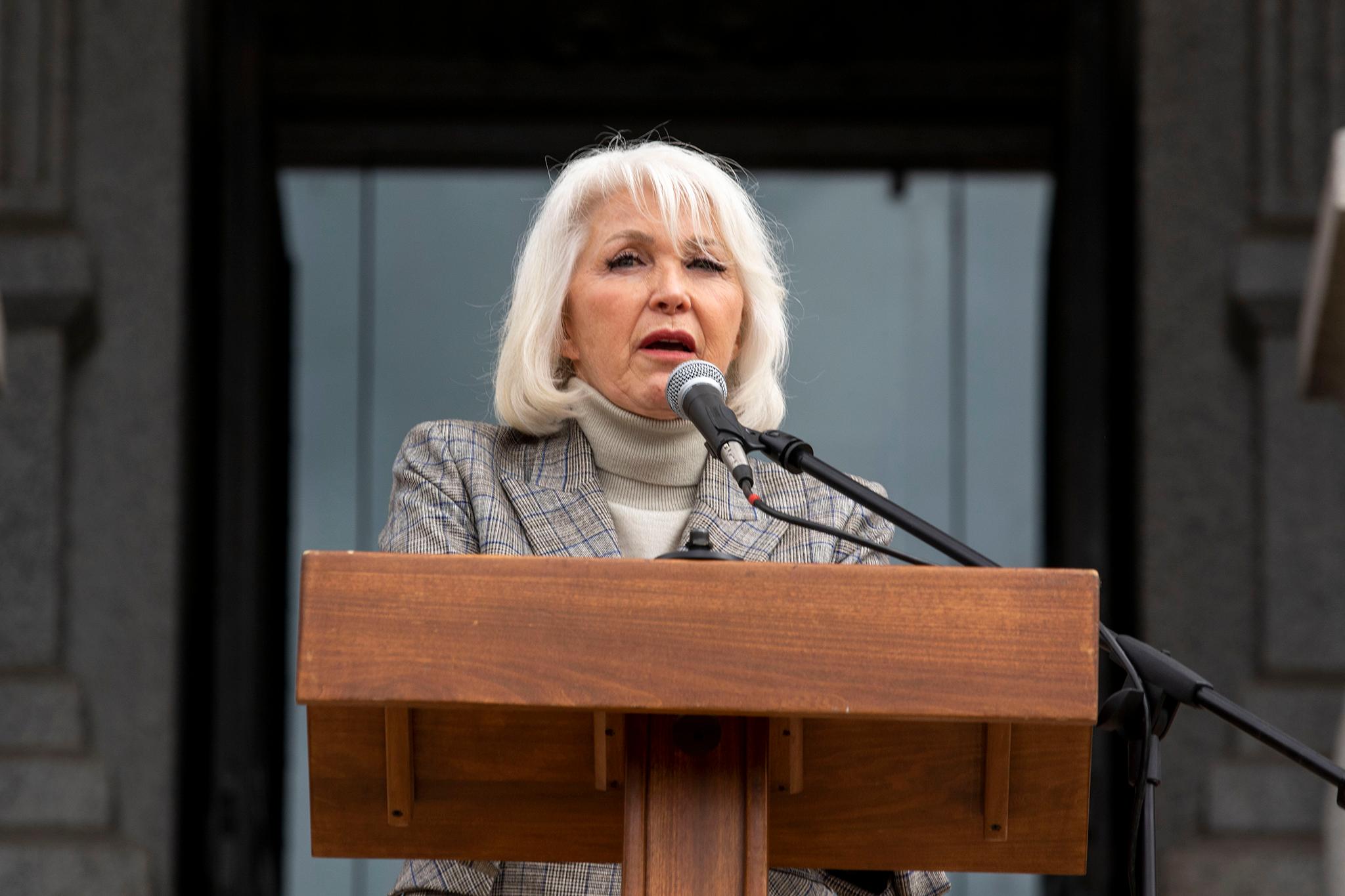
Prosecutors looking to build their case against Mesa County Clerk Tina Peters have gained a potentially important asset in their investigation — the cooperation of Peters’ deputy clerk Belinda Knisley.
On Thursday Knisley pled guilty to three misdemeanor charges relating to her role in the breach of Mesa County’s election machines last year. In return for dropping more significant charges against her, Knisley has agreed to assist prosecutors.
“There was some specific information she provided to us that was very valuable,” said Mesa County District Attorney Dan Rubinstein as part of his reasoning for the court to accept the plea deal.
The judge granted prosecutors’ request to sentence Knisley to two years of unsupervised probation, as long as she continues to cooperate with the investigators building a case against Peters and former Mesa County Elections Manager Sandra Brown. He also ordered her to perform 150 hours of community service. Her conviction will prevent her ever working or volunteering in elections administration again.
“This has been a very tumultuous time in her life,” Knisley’s lawyer said during the hearing, noting that she’s had a heart attack since the investigation began and that “she would like to get this matter behind her, do what she needs to do.”
In June, Knisley participated in what’s known as a “proffer interview” at the Attorney General’s office in Denver. Over the course of nearly seven hours, prosecutors said she laid out her role in an alleged plan by Peters to allow an unauthorized person to copy the hard drives of Mesa County’s voting machines and attend a secure software update of the equipment.
Peters, Knisley and Brown have been accused of deceiving employees of the Secretary of State’s office by creating an employee badge in the name of a local man, Gerald Wood, and allowing a different person, Conan Hayes, a national proponent of election conspiracy theories, to use that badge to attend the software update of the voting machines.
In the process of pleading guilty. Knisley described her actions as “all directed by somebody else.”
“Directed by my direct supervisor, the Mesa County Clerk and Recorder, I was told to submit a request to HR for someone to receive a badge. And that's what I did,” she said.
- Aug. 4: Tina Peters’ quarter-million-dollar recount gains her 13 votes
- Aug. 2: Donations for Tina Peters’ recount poured in after she appeared on Steve Bannon’s podcast
- July 22: Tina Peters out on bond after turning herself in and spending an hour in jail
- July 13: Third arrest made in Mesa County 2020 election fraud case
Judge Matthew Barrett said he has some hesitation about this plea agreement, telling Knisley her crimes are worthy of incarceration and that he would have sentenced her to jail time if possible. And he chastised her for blaming Peters for her actions instead of taking full responsibility.
“These facts are both troubling and alarming,” he said. “You engaged in concrete acts to undermine the integrity of our democratic process, in the guise of protecting it. You abdicated your role as a clerk, you violated your oath and you betrayed your duty.”
Barrett went on to offer strong words about the nature of the overall case.
“Democracy will prevail. Our system of law will prevail because without democracy and without our law, we are nothing more than any other failed state in this world, run by the loudest of voices with the worst of intentions, the mob who thinks they know what justice is without any regard for the facts or worse,” he said.
Ultimately the judge said he would trust the prosecution team’s judgment that Knisely was important to the other cases they are prosecuting.
The District Attorney had reiterated his support for the plea deal and said he was persuaded that Knisely wasn’t acting on her own volition.
“She was… acting at the direction of Ms. Peters and this was Ms. Peters’ agenda, and Ms. Peters was her boss. That does not excuse it, but it certainly is, I think, a mitigator as to the sentencing,” he told the judge.
D.A. Rubinstein said Knisley told investigators she was so concerned about the things Peters asked her to do that she spent an entire drive to Moab, Utah, discussing it with her husband. He also noted that unlike Peters, Knisley has never talked publicly about the election security breach.
“It was evident that while she was agreeing to go along with her boss, telling her to do these things, it was not her mission, her desire to do it. And she was bothered by it” said Rubinstein.
The terms of Knisley’s plea deal do mean that if in the future she stops cooperating with state and federal investigators, the agreement will be revoked and she could serve time behind bars.
Knisley has been on unpaid leave since the fall of 2021 after being accused of harassing and trying to intimidate other employees of the office. Despite being barred from entering the clerk’s office, she was found there, allegedly trying to use Peters’ log-in information to access computers.
Peters has denied that she personally did anything illegal and said she was simply trying to investigate questions she and her constituents had about voter fraud with the county’s Dominion voting machines. Peters has not yet entered a plea in her case.
Peters has not yet entered a plea in her case and criticized the government, media and what she called the “organized left” for making her supporters’ lives a “living hell.”
“We hold no ill will towards Chief Deputy Knisley, but Tina Peters will not back down and the truth will come out,” said a statement from the committee to elect Tina Peters.
“The level of intimidation we’ve witnessed in the last two years mimics third world dictatorships – not the United States.”
Earlier this summer Peters lost the GOP nomination for Secretary of State and a subsequent recount.









